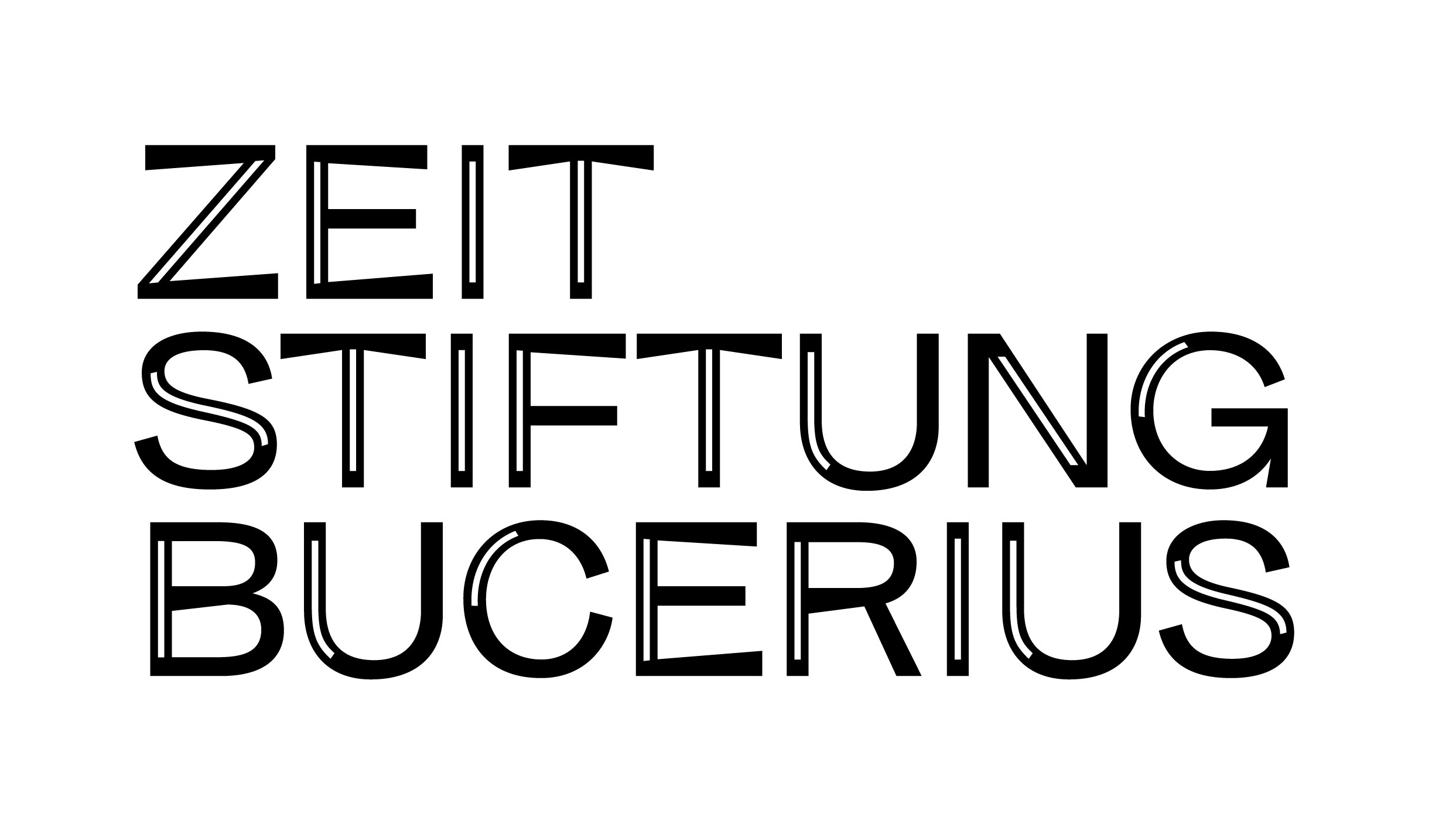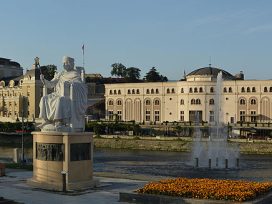Bulgaria: Drifting apart from Europe
Bulgaria will go to the polls on 2 April for the fifth time in two years, without there being any prospects of a resolution to the stalemate between liberal and pro-Russian forces. Caught in permanent election mode, the country is becoming increasingly isolated from Europe, while authoritarian influences gain ground.
Bulgaria’s traditional Russophile–Russophobe standoff persists after a year of full-scale war in Ukraine. The protracted political uncertainty caused by the inability of the political parties to form a regular government has further deepened the gulf between the two camps. With the country in relentless election mode, early enthusiasm about prospects for political change after the 2020 protests has dissipated.
The domestic situation is also having international spill-over effects. Bulgaria’s foreign policy positions exhibit three major characteristics. The first is a growing tendency towards self-isolation: Sofia has often been out of step with its western partners regarding political and military support for Ukraine. Second, insufficient action on European integration has led to Bulgaria’s relegation to the status of outsider in the Eurozone and Schengen space. Third, the virulence of Russian influence in Bulgarian society is increasingly causing the country to be seen as a threat to regional and allied security. The establishment of more robust democratic arrangements and greater international reliability represent key challenges for Bulgaria both in the present and the future.
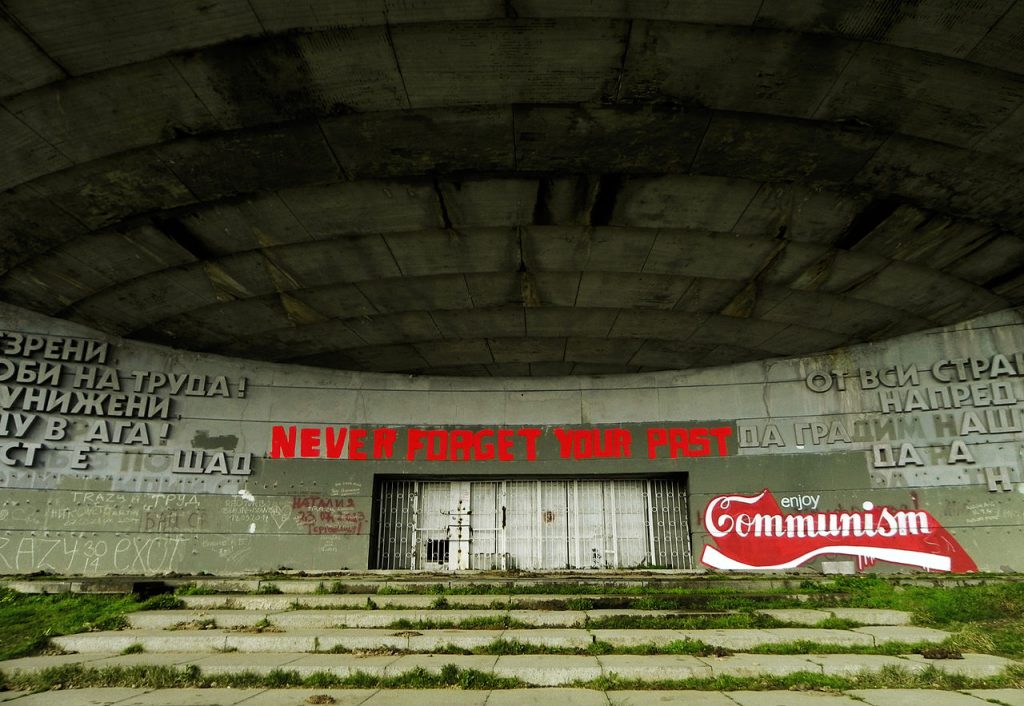
Graffiti at the communist Buzludzha monument in Central Balkan Mountains in Bulgaria. Source: Wikimedia Commons
Permanent elections
The political agitation triggered by the mass anti-corruption protests of 2020 has led to four parliamentary elections in two years, with another one on 2 April 2023. The political contest broadly maps onto the societal divide between two camps: on one side, the ‘status quo’ (political parties and figures descended from the communist and post-communist period, often with a pro-Russian orientation); on the other side, the ‘forces of change’ (a younger generation of politicians with a liberal and pro-western worldview). The irreconcilability of the two camps has produced three caretaker governments appointed by the president Rumen Radev and one regular coalition government, led by Kiril Petkov (co-chair of We Continue the Change), which lasted only seven months.
Do frequent elections empower citizens? Or has Bulgarian democracy degenerated into a state of perpetual flux? While citizens have indeed had a unique chance to make an impact over the past three years, societal support for either the status quo or change is evenly split. A critical mass cannot be assembled behind one group or the other. Many people share the view that there is little to distinguish political actors’ motivations, methods and goals, and that a meaningful choice therefore does not exist. Strong disenchantment among certain sections of society means that turnouts have been low, dropping from 50.61% in the April 2021 elections to 39.41% in October 2022..
The political vacuum left by the absence of a regular government has led to an enhanced role for the president, who has the power to designate interim cabinets (alongside largely ceremonial powers in the areas of diplomacy and defence). The incessant election mode and struggle for power among the political parties has further enabled developments that potentially undermine democracy and promote authoritarian tendencies.
For example, several populist initiatives for referenda have found their way onto the public agenda. The nationalist and pro-Russian party Vazrazhdane (‘Revival’) has spearheaded a referendum against the introduction of the euro in Bulgaria, which it claims is a threat to the nation’s sovereignty, solvency and identity. The political party ‘There Is Such a People’, led by showman Slavi Trifonov, has initiated a referendum on changing Bulgaria’s parliamentary system into a presidential one, ostensibly to do away with parliamentary factionalism and discord. For its part, a declining Bulgarian Socialist Party has campaigned for a referendum against the introduction of ‘gender ideology’ in the Bulgarian education system – a blatant instrumentalization of conservative values to whip up votes.
Bulgaria’s democratic dilemma thus plays out in a complicated matrix, in which the flourishing of pro-democracy civil society activity in 2020 and non-compromise with political forces representing the status quo also leaves ample room for counter-democratic tendencies. In other words: a drawn-out process of forcing political change has fostered an environment of flux and diminished accountability.
The Russia factor
The fluidity of the political landscape provides opportunities for foreign actors – particularly Russia – to exercise influence in Bulgarian politics, the economy and media. Local proxies and corrupt networks act as conduits for authoritarian influence. The recent sanctions imposed by the US and UK on Bulgarian political and business figures participating in Russia-related corruption schemes, especially in the sphere of energy, testifies to the enormity of the challenge. Bulgarian enmeshment in corrupt Russian activities not only poses a threat to domestic stability and transparency, but also makes the country a strategic weak link in the EU and NATO, posing a risk to international partners’ own financial systems.
The media is a particularly significant channel for Russian influence that allows the Kremlin to cement its hold over the public mind. This is not just a Bulgarian problem, admittedly. Since the start of full-scale war in Ukraine, the Kremlin has intensified its informational influence throughout south east Europe. Perceptions of historical, linguistic, ethnic and religious similarities mean that significant sections of local populations are predisposed to view Russia positively. Moscow taps into these social and cultural proclivities, leveraging its media clout through pervasive informality, rather than direct ownership of local outlets. Increasingly, the Kremlin also relies on its embassies for disseminating war propaganda via social media and other means. Serbian (social) media channels are another major factor in the regional diffusion of Russian propaganda.
In Bulgaria, pro-Russian dispositions nourish an informational ecosystem featuring a wide array of pro-Kremlin actors, who in turn draw on a broad range of disinformation sources to spearhead Moscow’s narratives. Politically affiliated actors and grassroots groups combine to form a large pool of pro-Kremlin proxies, in line with Russia’s strategy of cultivating opaque local networks of patronage. For its part, the Russian Embassy in Sofia has adopted a strategy of aggressive interference in the domestic informational environment.
All Russia-tilting sources converge on a general set of pro-Kremlin messages disseminated since the full-scale invasion of Ukraine. These can be summed up as follows: Bulgarian political elites who stand up to Moscow are ‘traitors’; Ukrainian refugees in Bulgaria are rich and therefore undeserving of the ‘lavish’ welcome provided by the state; the war was provoked by Ukrainian nationalism incited by the West; a new world order is emerging led by Russia and China; biological weapons are being developed by the US in labs in Ukraine, with the ulterior goal of targeting the Russian population. The last conspiracy theory is especially virulent in the pro-Russian information ecosystem and is rarely subject to content moderation by platforms.
Sections of the Bulgarian political elite and intelligence services have undertaken to expose the subversive activities of domestic pro-Russian actors and shine a light on the corrupt and murky networks that Russia uses to creates local dependencies. The State Agency for National Security has noted the Kremlin’s large-scale hybrid activities aimed at maintaining and expanding Russian influence in the Black Sea area. According to undisclosed investigations of the counterintelligence , Bulgarian politicians, journalists and analysts regularly receive payments from the Kremlin in return for influencing public opinion in a pro-Russian direction. The decision to expel Russian diplomats from Sofia in March and June 2022 was motivated by intelligence information that they had carried out hybrid attacks against the Bulgarian state.
Nevertheless, the pro-Russian allegiances of significant parts of the political spectrum militate against efforts to forge a consistent strategy for tackling the Kremlin’s insidious leverage. The Bulgarian authorities’ recognition of the challenge of informational threats has been limited, as have been the resources dedicated to fostering effective strategic communications. Civil society organizations have taken the lead, carrying out research, outreach activities and media literacy campaigns, but these efforts have not benefitted from extensive cooperation with the government sector.
Drifting apart
Bulgaria’s traditional East-West attitudinal and policy ambivalences came into sharp relief after the start of the Kremlin’s invasion. Disagreements over the supply of military aid to Kyiv strained relations between the coalition partners in the Petkov government, while in the country as a whole the neutrality narrative gained ground. One year on, these divides not only remained unresolved but have deepened.
The pro-western sections of the Bulgarian political elite have demonstrated a steadfast readiness to commit military support to Ukraine. As revealed by the German newspaper Die Welt in January 2023, the former prime minister Kiril Petkov and former finance minister Asen Vasilev (co-leaders of the ‘We Continue the Change’ party) had, via intermediaries, provided Kyiv with vital supplies of weapons, ammunition and diesel at a critical juncture during the fighting in 2022. It had not been possible to provide such support through direct supplies, since the government coalition partner, the Bulgarian Socialist Party, adamantly opposed weapons exports and had threatened to withdraw from the coalition over the issue.
These revelations speak to the highly contentious nature of the question of military aid to Ukraine. Even though parliament finally passed a resolution at the end of 2022 approving the supply of weapons to Kyiv, president Rumen Radev and his caretaker government have stepped up their neutrality rhetoric and alluded to a reversal of the parliamentary resolution. More weapons, they argue, would lead to an escalation of the war; peace, on the other hand, can only be reached through negotiations.
Such statements enmesh with and deepen the Bulgarian public’s general preference for neutrality (66% according to the most recent survey). In addition to the pro-neutrality trend, a tug-of-war is taking place between explicitly pro-Russian and Russia-critical politicians and sections of society. The European Parliament’s Autumn 2022 Eurobarometer Survey has shown that Bulgarians are divided in their assessment of the EU’s actions to support Ukraine through a combination of sanctions, financial, military and humanitarian aid. Of the Bulgarians polled, 49% strongly approved or somewhat approved, as against 45% who strongly disapproved or somewhat disapproved, and 6% who didn’t know. Within the Union as a whole, 73% of the polled population strongly or somewhat approved, as against 24% who did not.
The polarization has occasionally erupted in violence. The pro-Russian gatherings organized by the far-right party Vazrazhdane have provoked opposition from Moscow-critical sections of society. The clash has often played out at the monument to the Soviet army in Sofia, reigniting tensions over how to deal with the Russian and Soviet historical legacy. In 2022, a civic initiative named Dusk for Light called on mayors across the country to turn off the lights on Soviet statues as a marker of Bulgarians’ desire to overcome dependence on the Kremlin. The protest was intended as a step toward the final removal of statues symbolizing the Soviet occupation. The debate was reignited on the anniversary of the war by the attempt of an individual to remove the plaque from the Sofia monument.
Yet the entrenchment of pro-Russian sympathies among a significant part of the political spectrum means that Bulgaria has increasingly drifted away from the policy positions of its EU and NATO partners. Bulgaria’s policy towards China – Russia’s most prominent authoritarian ally – is good example of this. Political awareness of the strategic and economic threats emanating from Beijing is largely absent; instead, there is a prevailing perception that China represents an opportunity and that, as a potential partner, its ire must not be invoked.
Moves towards greater engagement with Taipei on the part of US and Europe have not resonated in Sofia. The Bulgarian government has assumed a policy position devoid of either rhetorical or practical support for Taiwan and the issue does not figure in political debates. Trade between the countries is limited and direct Taiwanese investment in Bulgaria is miniscule to non-existent. All this makes Bulgaria an outlier in central and eastern Europe and puts the government at odds with both the strategic direction and the values-based opposition to the authoritarian Chinese model on the part of the US and Europe.
In addition to the foreign policy chasm opening up with its western partners, Bulgaria has been unable to complete the necessary steps for its full integration into the EU. At the end of 2022, Bulgaria (together with Romania) was refused entry into the Schengen space. The reasons cited were failures to safeguarding the EU’s external border with Turkey and anti-corruption laws that had not yet been passed. In early 2023, it became clear that the planned introduction of the euro in January 2024 would have to be postponed due to high inflation and the lagging adoption of key legislation necessary for alignment with Eurozone rules.
Bulgaria’s further European integration would require a combination of determined diplomatic push, effective control of inflation and border reinforcements. But with the political purview constrained by the immediate demands of election campaigns, Bulgaria has become isolated from its western partners, while Russian and increasingly Chinese influence steadily increases.
Beyond the next election
It is highly unlikely that the election on 2 April will prove conclusive. Bulgaria will for the foreseeable future have to reconcile continuing realignments in domestic politics with the need to respond effectively to a high-stakes international policy environment.
Solving this conundrum requires reinvigorating democracy in ways that go beyond elections. The building of more permanent horizontal links between citizens for a sustained – rather than sporadic – assertion of civil rights and freedoms represents a more meaningful form democratic participation. Democratization at the societal level can also create firmer bonds between political parties and their constituents, leading to the cultivation of new leaders. Joining forces with international partners will deliver vital impetus and sustainability to democratic initiatives.
Establishing collaboration between governmental, societal and international partners can also be a means to raise awareness of foreign authoritarian influence. Unmasking the historically continuous propaganda through which Russia holds Bulgarians captive is a prime strategic goal of democratic reinvigoration. Only by reimagining the future of democracy from the bottom up can Bulgaria begin to make a genuine contribution to the Euro-Atlantic community’s defence of the international liberal order.
Published 23 March 2023
Original in English
First published by Eurozine
© Rumena Filipova / Eurozine
PDF/PRINTIn collaboration with
In focal points
- Living dead democracy
- Why Parliaments?
- Spelling out a law for nature
- No more turning a blind eye
- The end of Tunisia’s spring?
- Protecting nature, empowering people
- Albania: Obstructed democracy
- Romania: Propaganda into votes
- The myth of sudden death
- Hungary: From housing justice to municipal opposition
Newsletter
Subscribe to know what’s worth thinking about.
Related Articles
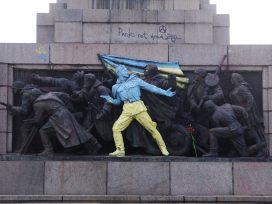
Disagreements over military aid to Ukraine threatened Bulgaria’s ruling coalition and were resolved thanks only to a compromise mediated by Volodymyr Zelensky. But pro-neutrality stances still find support across the political spectrum. Bulgaria’s balancing act between Russia and the West follows an established pattern.
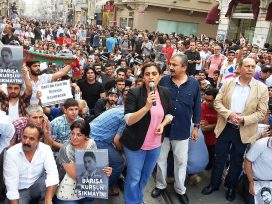
While lasting peace between the Turkish state and the Kurds now seems a genuine possibility, Ankara’s assault on democracy continues. Sırrı Süreyya Önder, the longtime dissident who died last year, remains a symbol of hope.
